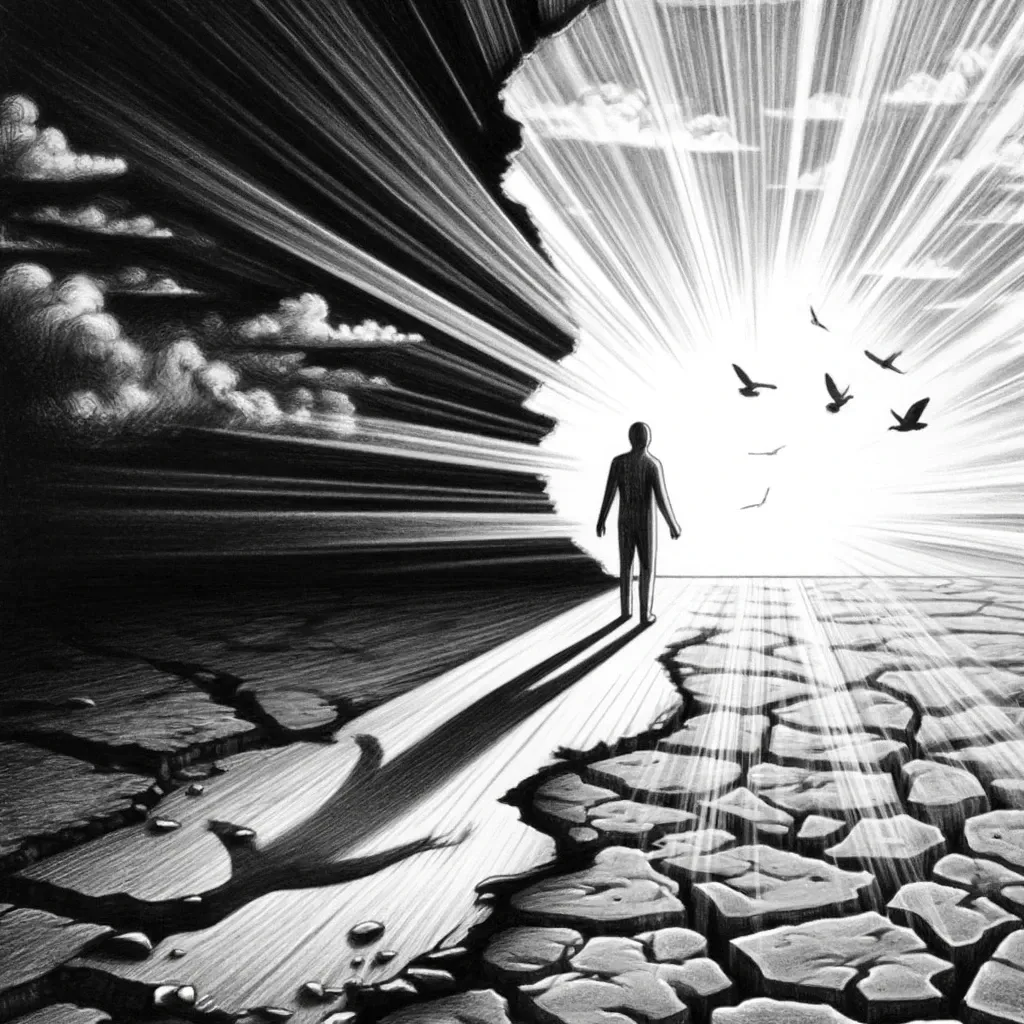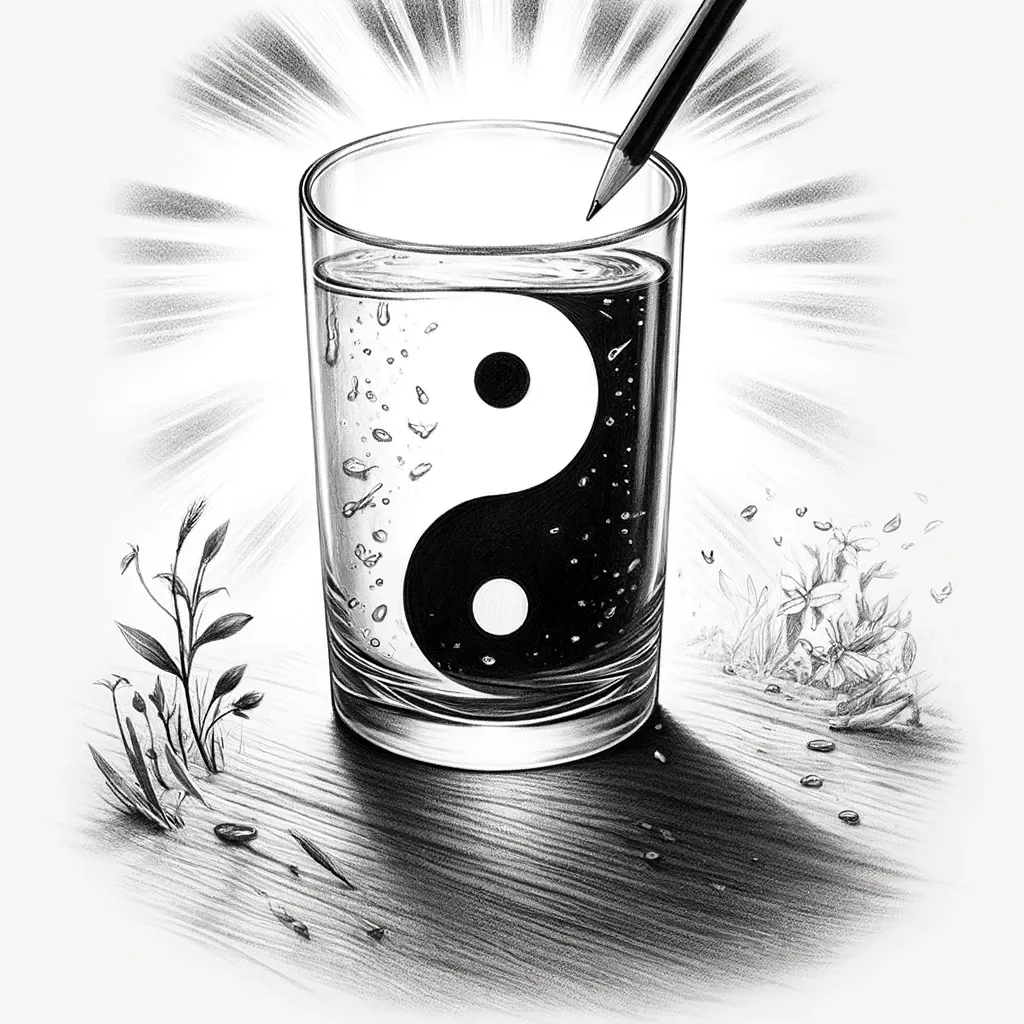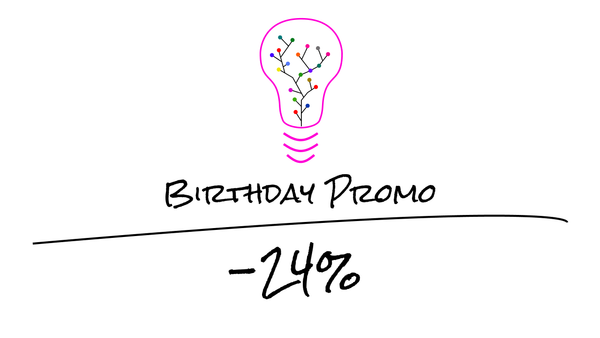Optimism, pessimism and freedom
Optimists tend to find more creative solutions. Here's why.

In this article, I want to discuss the relationship between optimism and freedom.
Optimism and pessimism are closely related
Often, seeing a glass half-empty or half-full depends on our own history rather than on the current state of the world and current events. Optimists and pessimists face the very same reality, but decide to interpret it in a drastically different ways.
Sometimes the more negative views of the world are more appropriate than the brighter options, especially when real dangers are involved. But most of the time, while pessimism is the path of least resistance, it's also the most limiting one.

In a way, optimism and pessimism are two sides of the same coin. They represent two different ways to assess a situation and decide how to act or react. It's often very interesting to consider different points of view before taking important decisions, as each may lead to drastically different conclusions, actions, and results.
Why optimism is freedom
Optimists see possibilities and opportunities, whereas pessimists focus on risks and pitfalls. The thing is that most of us are pessimists by nature. Humans have a tendency to fear losses (loss aversion) and avoid risks/dangers.
That being said, when there are no major (physical or financial) risks involved, optimists have freedom on their side. They are able to consider different solutions to the problems at hand. Optimism is freedom in the sense that it opens a world of possibilities. Instead of seeing only problems and roadblocks, optimists see opportunities and are able to come up with creative solutions.
Optimism enables abstracting problems and improves focus on the big picture
Optimists are able to ignore certain challenges to focus on what's coming next. Seen in that light, optimism enables abstraction and focus on the bigger picture.
Being an optimist doesn't mean completely ignoring reality, and requires correctly evaluating the risks involved. Assuming that worst-case scenario consequences are not dramatic, optimism is often the most interesting choice, as it opens up more possibilities.
Optimists make bets on positive outcomes based on their own experience and an enlightened and rational evaluation of the situation. Optimists need to assess risks correctly and may remain risk-averse, but prefer to focus on the potential of positive outcomes. That being said, it doesn't mean that optimists can't also prepare for the worst-case consequences.
They are sometimes proven wrong, but oftentimes, optimists will actually tip the scale and help positive outcomes become reality. There's no scientific study backing my claims, but it's an opinion I've forged based on my life experiences.
Conclusion
In this article, I've discussed the relationship between optimism, pessimism, and freedom. I've also discussed why optimism tends to open up a world of possibilities and find more creative solutions.
So in which camp do you stand? Optimists or pessimists?
Whether you're naturally inclined to be optimistic or pessimistic, do consider both sides of the equation, and evaluate where each choice might lead you. When in doubt, prefer the optimistic point of view. You (generally) won't be disappointed.
That's it for today! ✨
About Sébastien
I'm Sébastien Dubois, and I'm on a mission to help knowledge workers escape information overload. After 20+ years in IT and seeing too many brilliant minds drowning in digital chaos, I've decided to help people build systems that actually work. Through the Knowii Community, my courses, products & services and my Website, I share practical and battle-tested systems. You can follow me on X 🐦 and on BlueSky 🦋.
I am an author, founder, and coach. I write books and articles about Knowledge Work, Personal Knowledge Management, Note-taking, Lifelong Learning, Personal Organization, and Zen Productivity. I also craft lovely digital products.
If you want to follow my work, then become a member and join our community.
Ready to get to the next level?
If you're tired of information overwhelm and ready to build a reliable knowledge system:
- 🎯 Join Knowii and get access to my complete knowledge transformation system
- 📚 Take the Course and Master Knowledge Management
- 🚀 Start with a Rock-solid System: the Obsidian Starter Kit
- 🦉 Get Personal Coaching: Work with me 1-on-1
- 🛒 Check out my other products and services. These will give you a rock-solid starting point for your note-taking and Knowledge Management efforts





